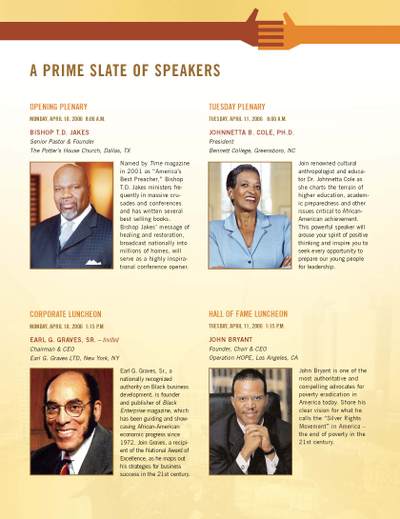 I spoke today before more than 1,000 of some of the most influential African-American public administrators in country in Ft. Worth, Texas.
I spoke today before more than 1,000 of some of the most influential African-American public administrators in country in Ft. Worth, Texas.
It was the National Forum of Black Public Administrators and individually and collectively, they gave me hope today. So many times I run into folks who are more serious than substance, meaning that they take themselves too seriously, and really shouldn’t. Translation — they were not all that impressive to begin with. That was not the case today.
These folks know who they are, they know how to have fun, and they know how to hold a substance filled national conference. I attend so many of these as a speaker that often, frankly, they just blend together; but today was different. I genuinely felt a passionate and heartfelt desire for folks to "serve others," and to make a real difference in their communities. Not just go through the motions. I also ran into a number of friends there, from John Hill from the Los Angeles County Board of Supervisors, who invited me, to Dana Bryson of District Government, to Ellis Stanley of the City of Los Angeles and several friends from the City of Oakland, amongst others.
I talked broadly about Operation HOPE and the silver rights movement, and what each of them could do to get involved, but I started my remarks with a few interesting bits of Texas history, such as;
- The Spanish that came to Texas in the 1500’s were accompanied by a guide and translator of African descent; the only person able to translate the many Indian dialects and languages for the Spaniards.
- From 1827 to 1860, the slave population ballooned from a few hundred to more than 180,000, or 30% of the entire Texas population.
- In the 1866-1868 time frame, following the civil war, 10 African-Americans served amongst the 90 delegates to the Texas State Constitutional Congress. In short, they helped draft the State Constitution, helping to insure that every child received a free education and all residents had a right to essential services.
- From the 1860’s to sometime just prior to 1900, there were more than 40 African-American elected officials in Texas alone (a period known as Reconstruction).
- In 1902, with the introduction of the Poll Tax and other methods designed to suppress the Black vote, African-Americans who voted plunged from a high of 100,000 to a low of 5,000 voters in the state.
- Blacks struggled in Texas through the Depression and it was not until 1966 until Texas delivered its first Black member of Congress to our nation’s capitol. But it was not just any outstanding public servant. It was none other that Congresswoman Barbara Jordan, the first Black female to serve in Congress for the entire nation.
Message — rainbows after storms. You cannot have a rainbow, without a storm first. Keep on struggling with pain, for there is no shame in legitimate suffering.
Onward, with HOPE
